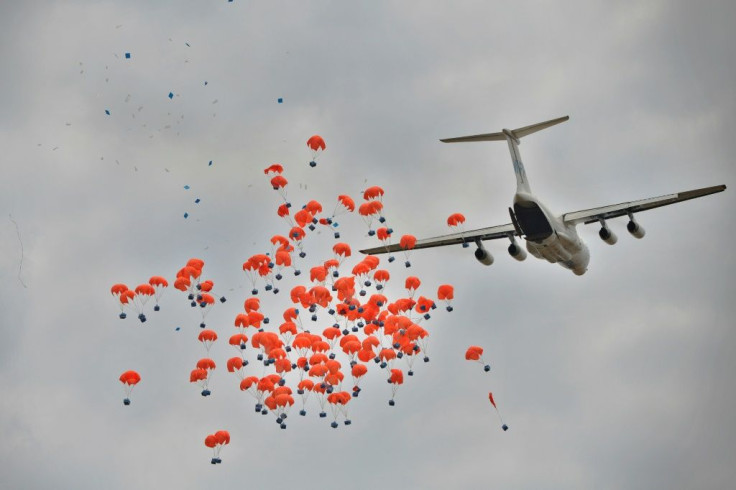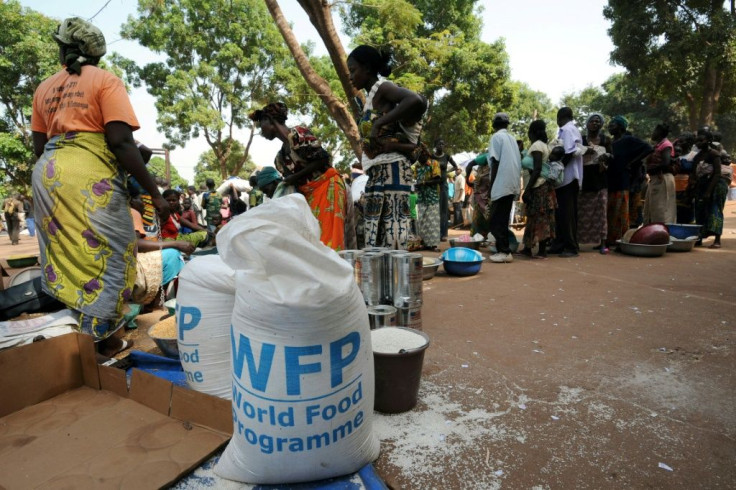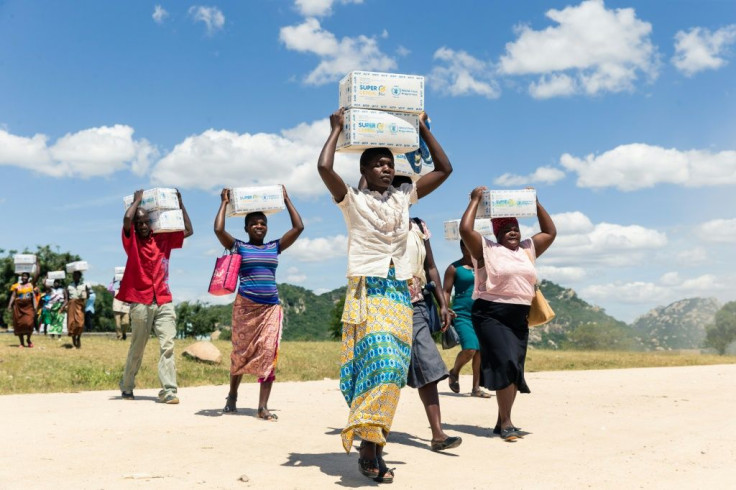WFP Frontline Staff Express Shock, Pride Over Nobel
They risk their lives to feed millions of people in some of the most dangerous places on the planet, but Friday offered a chance for World Food Programme staffers to feel some recognition for their work when their organisation won the Nobel Peace Prize.
"First of all everyone was quite shocked, and now a little bit overwhelmed by the whole thing," said WFP country director for South Sudan Matthew Hollingworth.
South Sudan is one of WFP's largest emergency humanitarian operations, its 1,200 field staff feeding some five million people -- nearly half the population -- in a country where deliberate starvation is used as a weapon of war, and famine is a constant threat.

It is the only country where WFP still drops food from planes due to the endemic conflict and difficulty of navigating the vast terrain.
"The staff are thrilled. No question," Hollingworth said of the award. "I'm incredibly proud to be working with them, to be honest."
The WFP provided food to some 97 million people across 88 countries last year, and is present in many of the world's deadliest war zones, including its biggest emergency operation in Yemen, where it aims to feed 13 million people every month.
"When I heard the news... I stopped breathing, I couldn't believe it," said Espinola Caribe of WFP's office in Mozambique, where they have been working to feed communities devastated by a monster cyclone last year.

He said he moved from office to office, congratulating and thanking his 50-odd staffers.
Caribe described a field trip last week to the areas worst-hit by the cyclone.
"It's a feeling you can't explain, you have to live it, seeing how our people are struggling to keep these people alive.
"Being in the frontline, being able to provide nutritional supplements and being able to keep this child alive... it's an amazing feeling," he said.

The WFP's mission goes beyond food handouts, and includes educating families on child nutrition and helping them to become self-reliant.
In Turkey, where the WFP works with the government and other agencies to help Syrian refugees, it has recently expanded into providing vocational programmes -- training both Syrians and Turks in a bid to build social cohesion.
In the Central African Republic, the WFP feeds some 750,000 people every month.
The Nobel is a "recognition of all the work the WFP has done in the most difficult crises, the most vulnerable areas," said Vigno Hounkanli, communications director in the capital Bangui.
"Here we work in a very difficult context. The teams go to very remote places, often putting their lives at risk, and I'm thinking now of our colleagues who gave their lives to save others."
Mawa Coulibaly, 49, has been working in the CAR for seven years and is currently with a 15-strong team in the volatile northwest where brutal militias often target aid workers and peacekeepers.
She spoke of her "great pride" over the Nobel.
"I'm proud because I know the work we do to bring communities together," she said.
"The terrain is very difficult here," she added. "The roads are very bad and in the rainy season, it's very complicated. And we're on the border with Cameroon and Chad, so there are many robberies on the road."
© Copyright AFP 2024. All rights reserved.



















